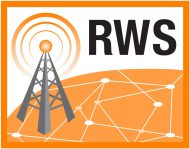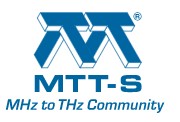RWS Papers featuring innovative work are solicited in (but not limited to) the following areas:
- High-speed and Broadband Wireless Technologies
- Broadband Fixed Wireless and Last-Mile Access
- Optical Networks Systems and Microwave Photonics
- M2M, V2V & V2x Technologies & Applications
- Emerging Wireless Technologies & Novel Engineered Materials / Processes
- Green, Sustainable Wireless Technologies & Networks
- Wireless Power Transfer
- Quantum Technologies
- Additive 3D manufacturing & Novel Engineered Materials
- Wireless System Architecture and Propagation Channel Modeling
- Distributed & Ad-Hoc Network Architectures and Systems
- Wireless Mesh and Local/Personal/Body Area Networks
- Wireless Digital Signal Processing and Artificial Intelligence
- Digital/Analog Adaptive/Collaborative Signal Processing
- Dynamic Spectrum Sharing, Coexistence, Interoperability
- Artificial Intelligence & Machine Learning in Radio and Wireless
- Applications to Bio-Medical, Environmental, and Internet of Things
- Miniaturization and Integration of Wireless Technologies
- Biological Material Characterization
- Wireless Positioning Technologies & Remote Sensing
- Antenna Technologies, MIMO and Multi-Antenna Communications
- Multi-Beam Smart Antennas
- Miniaturized, Multi-frequency and Broadband Antennas
- Passive and Active Antennas from RF to THz Frequencies
- Wireless Platform Integrated Antennas
- Passive Components & Packaging
- 3D-Packaging, Interconnects, and Applications
- Discrete, Embedded and Distributed Passive Components, Filters Couplers and Signal Separation
Devices
- MM-Wave to THz Systems & Applications




